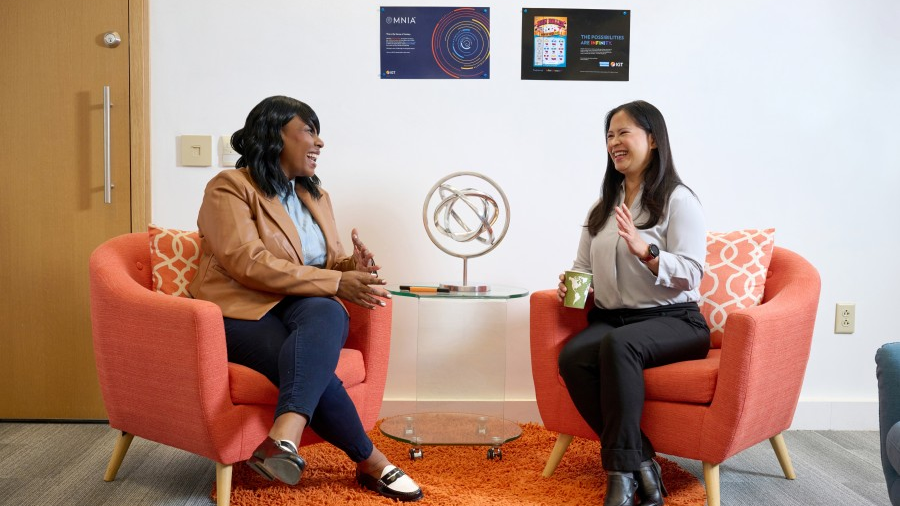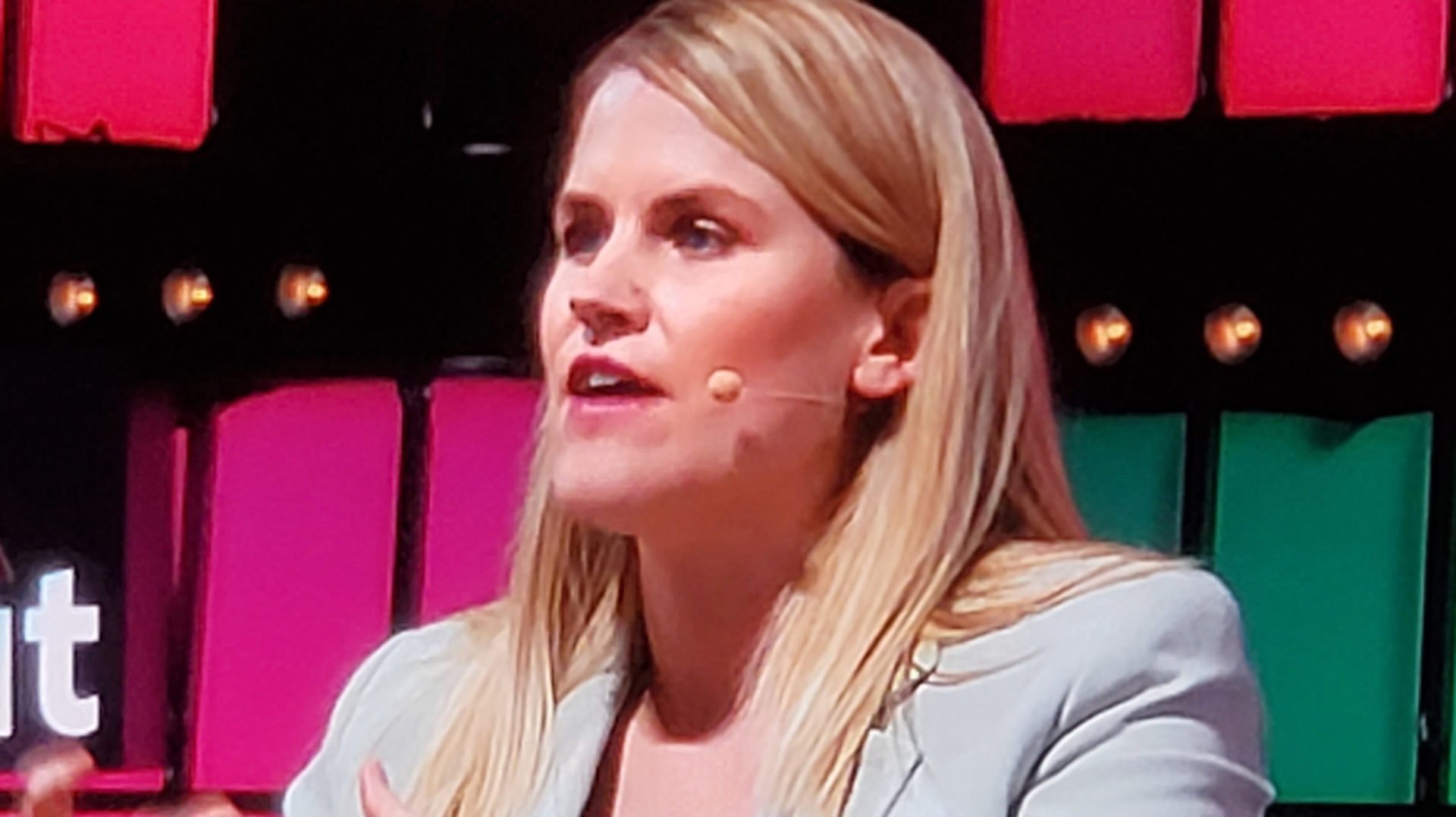
Here’s why Mark Zuckerberg cannot run for president any time soon even if he wanted to. If he did, it would highlight a simple and disturbing fact. The company, if it chose, could engineer the results of any election in the world. Facebook controls the information flow to a huge percentage of the citizens in most of the democratic world, including the United States. Unless and until Zuckerberg takes concrete action to make the way his service works more transparent to the world, to run for office would invite scrutiny he has to avoid. The same holds true for his high-profile deputy Sheryl Sandberg, whose political ambitions have been the subject of speculation for considerably longer.
Facebook and Google present a dilemma to the world. Billions depend on them for communication, entertainment, and information. They have vast influence on society, including, it increasingly appears, some very unpalatable effects on social dialogue and politics. But they answer to nobody but themselves. And nobody inside or outside of the companies really has a good idea what we as a society should do about it.
Similar concerns surround Amazon, though for now they are less politically focused. It has an inordinate influence on commerce, commanding 40 percent of all online purchases in the United States. It is building vast databases about the preferences and purchases of hundreds of millions of citizens. That information enables it to extend its reach into a wide range of other industries. It’s a major producer of TV shows and movies. Its Amazon Web Services (AWS) hosting and enterprise software business is often the default choice for companies that want to operate “in the cloud.” A significant percentage of American companies store crucial data in Amazon’s servers. Even its video rival Netflix uses AWS.
These three companies have all reached a scale and influence unprecedented in the history of capitalism. And they do bring very large benefits to society and to people. Yet their inner workings—the crucial algorithms that govern their news feed, search engine, and shopping systems—are theirs alone to operate and to know. These issues should concern not just citizens, but companies in every industry. “There is a complete lack of transparency into these networks,” says venture capitalist Hemant Taneja of General Catalyst, among the most outspoken in Silicon Valley on these questions. “How do we run a society with the standards and egalitarian values that we care about in a world where these companies exist?”
Already, many in business eye the giants warily. Says Sir Martin Sorrell, CEO of global ad giant WPP: “Facebook, Google, and Amazon are increasingly becoming traditional utilities.” The implication of being a utility is, of course, that it should be regulated.
The Russian fake news scandal has suddenly, finally, thrust some of these issues onto the agenda of the media and Congress. Facebook CEO Zuckerberg dismissed the notion that fake news on his platform could have affected Trump’s election as a “crazy idea” when I interviewed him onstage at the Techonomy 2016 conference two days after the election. He has subsequently swung 180 degrees, and has contritely and forthrightly promised to increase the company’s efforts to monitor and identify politically incendiary content. But the question of what kind of content society should tolerate on these services—including Google search, Facebook, Instagram (owned by Facebook), Google’s YouTube, and the much-smaller company Twitter—has now suddenly risen close to the top of worries about where society is headed.
It almost certainly will be a matter for government and regulation to address. There are endless calls for the companies to muzzle hate speech and ensure bad actors don’t do nasty things like mess with elections. But do we really want commercial entities to be the ones charged with keeping alive the First Amendment? It should not be up to the leader of a for-profit company to decide what sort of speech is allowed in the public square, even if, as it appears, they own the public square. This is the kind of issue that must be addressed with law. But of course that is complicated since these companies operate in so many countries with such different laws.
In late 2017, Google faced a credible accusation that it had been suppressing traffic to left-leaning websites during efforts to eliminate fake news from search results. But there is no recourse for such a concern. “Fakeness” is not always easy to determine. Google will not say why some things show up high in a search result and others not at all. And it doesn’t have to.
Roger McNamee is one of the more surprising voices to have begun raising an alarm about the power of the net giants. The longtime tech investor put a lot of money into Facebook early, and he played a significant role in helping his then-friend Sheryl Sandberg get hired as Zuckerberg’s number two. But he has had a cruel epiphany. He says the fundamental and pernicious challenge for Facebook and the other companies is the impact of an advertising-based business model. “It used to be a world of information scarcity,” says McNamee. “People always wanted more, and a company could change the world by giving it to them. Smartphones changed the game by making the web accessible every moment a person is awake. That transformed media into a battle for attention, where players that could target individuals had a prohibitive advantage. Just as in traditional media, sensation has more economic value than substance, which leads to a race down the brainstem, aiming at emotions like fear and anger. If you want to win a battle for attention, it helps to addict your users, which social media companies have done more effectively than tobacco. Addiction, fear, and anger are the fuel for their social business models. My point isn’t that we should ban these services, but we need to have a debate on what society should allow.”
The net giants affect the behavior and even the thoughts of a vast swath of humanity—their users are the wealthiest, most wired, most influential group of people on the planet. It’s their economic power that makes these companies so valuable to investors—they are showing advertising and selling things at a fast-growing rate that shows no sign of slowing. Longstanding once-powerful companies are left in their wake. When Amazon announced it would lower prices at Whole Foods on the completion of its acquisition, the stock of grocery giant Kroger dropped 8 percent immediately.
But the dilemma of power, and how to regulate or constrain it, is compounded by the very fact that the happy users of these services happen to be the voters. The Amazon Prime delivery service is used by roughly 60 percent of all American households. Facebook has about 213 million monthly users in the United States. And who doesn’t use Google multiple times per day? Even if governments figured out how to properly regulate these companies, there is no assurance of political support to do so. The companies are in many ways more powerful than governments. Not only that, but they are truly global, operating across fragmented political jurisdictions.
Here’s another challenging fact: We are headed into a world controlled heavily by artificial intelligence (AI). That means algorithms will soon be giving us input and affecting our behavior and the world. And what makes AI work is data. The more you have, the better you can make your AI. The net giants, along with Apple and Microsoft in the United States, and Alibaba, Baidu, and Tencent in China, show every sign of having access to the largest pools of data anywhere. So an AI future will likely be one in which these companies have even more power.
The people who run Amazon, Facebook, and Google are generally good people, with honorable intentions. The problem is that once they became public companies, responsible to shareholders, their freedom of action was radically curtailed. However much “non-evil” or “creating community” they want to do for the world has to happen under scrutiny from shareholders, who want the share price high and rising. To do the right thing morally and ethically can easily require cutting into profits.
For years, the companies have argued that they should bear no responsibility for the content users put there, saying they are mere “neutral platforms,” and that it is near impossible to police such speech. Recently they made that argument around sexually-exploitive content, as Congress contemplated a law that requires platforms to insure such seamy material has no place, or face the risk of lawsuits if it slips past.

The “neutral platform” argument makes sense in the abstract, but when Facebook and Google became two of the most profitable companies in the world, the situation changed. They can now clearly afford to take much more stringent efforts to police speech, with the only downside being that profits might be somewhat less gigantic.
Mark Zuckerberg published an impressive magnum opus on his Facebook page in February 2017. Entitled “Building Global Community,” the 5700-word essay declared that the world faces a crisis of community—an inarguable truism—and that Facebook holds unique capabilities to remedy and address it–a more controversial point. In fact, Facebook has had powerful impact on bringing people together globally, in country after country, and Zuckerberg’s desire to double down on that aspect of the company’s work is admirable and understandable. No CEO of a major company has ever, so far as I know, written such a passionate, public-spirited, idealistic document promising to use his or her company for public good.
But here’s the rub—policing hate speech and reducing anti-community behavior on Facebook inevitably will involve shutting down accounts, preventing posts, and in general pushing people and content off the site. That will reduce page views, the engine for ad sales. That, in turn, could cut into Facebook’s astonishingly high earnings—projected to be $12 billion in 2017. Zuckerberg did not mention any commercial implications of his promised efforts to build global community. But the only true test of his commitment will be how much money he is willing to spend, and profits he is willing to sacrifice, to achieve his lofty goals. Investor McNamee has a scathing way of expressing the current state of affairs: “Facebook has the largest margins of any company of similar size in the American economy. They’re functioning like a drug company without doing clinical trials.”
Largely because of the Russia election meddling scandal, the entire mood in Washington has shifted towards restraining these companies. Then-President Barack Obama pulled Mark Zuckerberg aside at a global meeting a few weeks after the election to implore him to address election-related fake news, no doubt influencing his turnabout. Hillary Clinton said in September that “we’re going to make Facebook own up to everything.” A bipartisan bill introduced in late October by U.S. Senators Amy Klobuchar, John McCain, and Mark Warner would require internet companies to disclose to the Federal Election Commission who is paying for politically-related advertising. The criticism of net companies spans the spectrum. Fox News host Tucker Carlson has said on air that “Google should be regulated like the public utility it is.” Meanwhile, in November 2016 the U.S. Senate and House Intelligence Committees and the Senate Judiciary Committee all held hearings on Russian electoral interference using online ads. Facebook, Google and Twitter all sent only lawyers, who did own up to the existence of problems and promised to do a better job monitoring political advertising. The hearings did not assuage many.
Google was fined $2.8 billion by the European Union in June 2017 for unfairly giving advantage in its search results to its own shopping service, over those operated by independent companies. But in a sign of how hard it is to make a dent in this fortress, Google’s stock rose the following day, as investors shrugged. In late 2017 Google’s stock market value was about $660 billion, Facebook’s just under $500 billion, and Amazon’s $450 billion, even though, unlike the other two companies, it is barely profitable. Wall Street’s willingness to bequeath such vast stock valuations to these behemoths makes them harder to restrain. If President Trump allows American companies holding profits overseas to repatriate them at a favorable tax rate, it will only further empower this group, all of whom have many billions parked overseas to avoid American taxes.
While fake news and abusive content is the main focus of governmental attention now, a host of other issues will follow in its wake. Issues of privacy, information access, and the ownership of vast stores of information about the thinking and behavior of citizens will be the next areas of concern. Meanwhile, challenges to our electoral system will likely continue.
Government may have finally begun to wake up to the challenge posed by the net giants. But when it comes to tech and the internet, government, and particularly the United States government, is generally inept and slow. Yet for any even marginally successful strategy to dampen the undue power of these companies, government will have to become a tech player, complicated and fraught though that might be.
Venture capitalist Taneja, who has given these matters a lot of thought, says, “these companies are effectively monopolies. Government has to step in.” I asked him if one approach might be the one the U.S. Justice Department arrived at, to resolve its antitrust case against Microsoft in 2002. The company was required to make a number of technical and legal disclosures, and a judge was given extensive legal oversight of its actions for the next eight and a half years.
“The problem is, this time it’s not going to get done by using humans,” responded Taneja. “The government has to have its own AI department, so there can be a software watchdog.” He says only algorithms will be able to effectively oversee other algorithms.
That is so far from being possible that it’s another way of saying that today we don’t have a way to restrain and oversee the net giants. But eventually, we have to find a way.
David Kirkpatrick is Techonomy’s chief techonomist, and author of The Facebook Effect
Amazon, Facebook, and Google: Too big to tolerate. Too big to stop.
As society begins to realize it has allowed globe-spanning commercial net giants too much power, it also becomes clear that figuring a policy response will be hard. Techonomy's co-founder, author of The Facebook Effect, weighs in on the disturbing and growing controversy over what comes next.















